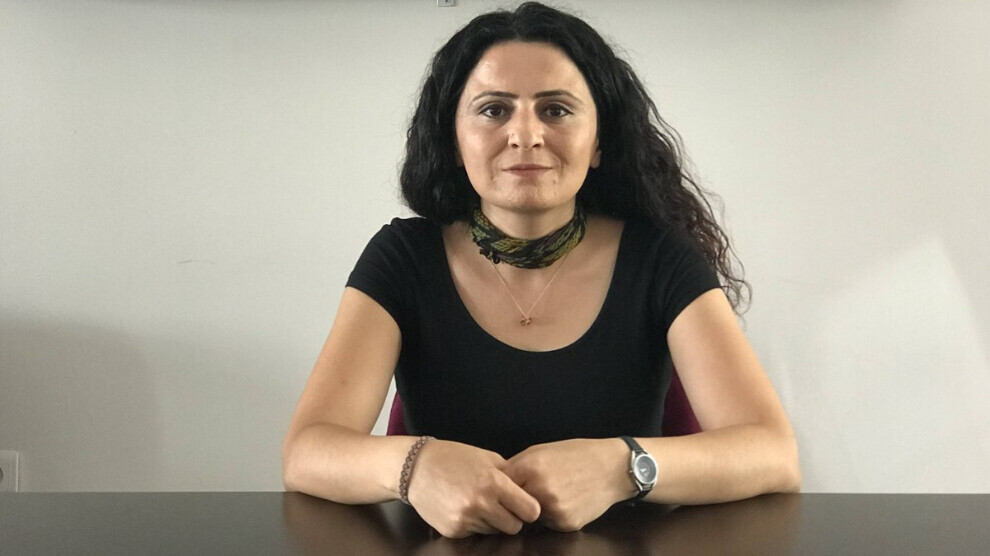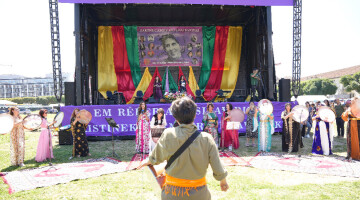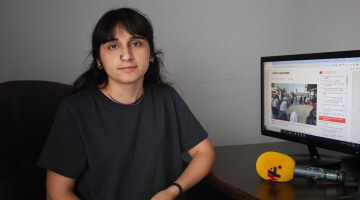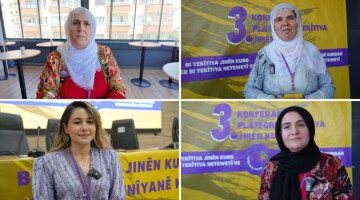Narin Gezgör, a linguist and women's rights activist, has been sentenced to seven and a half years in prison by a Turkish criminal court in the province of Amed (Diyarbakır) on charges of membership of a "terrorist organisation". The sentence is related to a trial against the Rosa Women's Association, of which Gezgör is a co-founder, which has been ongoing for over three years. In the first trial in November 2020, the court sentenced her to seven years and six months in prison. However, the Court of Cassation overturned the sentence due to incomplete investigations and ordered a retrial.
The Rosa Women's Association fights against violence against women and has been the focus of repression for years. The association was founded as a civil society organisation in Amed at the end of 2018. The association supports women affected by violence and campaigns for gender justice, environmental protection and a democratic culture of peace in society. After the state-imposed closure of all municipal women's institutions in the wake of the coup attempt in 2016, it is now the only institution in Amed to which women can turn for advice and support.
The first wave of arrests against Rosa began in May 2020, and by June of that year ten women had been arrested for "membership in an armed terrorist organisation". At the time, it was said that the association was founded to recruit members for a terrorist organisation - meaning the PKK - by using high-profile issues such as femicide and violence against women. Among the women imprisoned was Narin Gezgör, who was released after three months. In the second wave of repression in April 2021, the association was broken into by the police and searched. Since then, several activists have been sentenced to prison terms of varying lengths, including journalist Nurcan Yalçın and Peace Mother Hayriye Türkekul.
The prosecution against Gezgör was mainly based on the testimony of a prosecution witness who stated in the first trial that he had met the activist in 2014 at the HDP (Peoples’ Democratic Party) in Suruç district of Urfa as a "PKK militant". Gezgör's lawyers Elif Tirenç Ipek Ulaş and Semra Balyan rejected the claims and submitted evidence to the court showing that the party's district association in the city was only founded in 2015 and that their client became a member of the HDP much later, in 2018. In addition, she had been working as an employee of the municipality at the time. The alleged witness is said to be a former PKK member who benefited from the Turkish repentance law in order to avoid his own punishment. According to Gezgör's lawyers, his statements could not be used at all under Turkish law.
Among other things, the prosecution wanted Gezgör's membership of Rosa, her involvement with the association, interviews she gave on women's issues and her participation in press statements, rallies and funerals to be punished as "terrorism". The lawyers accused the prosecution of classifying a legal association as "illegal" and of seeking to punish Narin Gezgör for her work against patriarchal violence. The lawyers demanded acquittal for their client, who did not attend the trial. The verdict is not yet final.















